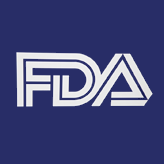FDA Approves Omacetaxine (Synribo) for CML
The FDA today approved omacetaxine mepesuccinate (Synribo) for the treatment of adults with chronic myeloid leukemia (CML) who are resistant to other therapies.

The US Food and Drug Administration (FDA) today approved omacetaxine mepesuccinate (Synribo) for the treatment of adults with chronic myelogenous leukemia (CML) who are resistant to other therapies. The new drug is intended for patients whose cancer has progressed following treatment with at least two tyrosine kinase inhibitors (TKIs).
Subcutaneous omacetaxine mepesuccinate is a first-in-class, reversible, transient inhibitor of protein elongation that facilitates tumor cell death and does not depend on BCR-ABL signaling.
“While the CML treatment landscape has seen advancements with available TKI treatments, there are still cases where patients may not be able to continue using TKIs due to issues such as resistance, intolerance, suboptimal response, and disease progression,” said Jorge E. Cortes, MD, deputy chair and professor of medicine in the Department of Leukemia at the University of Texas MD Anderson Cancer Center, in a press release. Dr. Cortes was a principal investigator in the trials that led to the approval of the new drug. “With Synribo, physicians will now have access to another option, offering potential hope to patients who experience treatment failure.”
According to estimates from the National Institutes of Health, in 2012 an estimated 5,430 people will be diagnosed with CML.
At treatment induction, omacetaxine is delivered twice daily for 14 consecutive days of a 28-day cycle until hematologic response is achieved, and then twice daily for 7 consecutive days over a 28-day cycle during maintenance therapy.
The effectiveness of omacetaxine was evaluated from the combined data subsets of two phase II, open-label, multicenter studies that included chronic and accelerated phase CML patients whose cancer had progressed after previous treatment with two or more TKIs.
In chronic phase CML, a major cytogenetic response was seen in 18.4% of patients (14 out of 76), with a mean time of onset of 3.5 months. The median duration of response was 12.5 months (Kaplan-Meier estimate).
In accelerated phase CML, major hematologic response were achieved in 14.3% of patients (5 out of 35), with a mean time of onset of 2.3 months. The median duration of response was 4.7 months (Kaplan-Meier estimate).
The most common adverse events reported from the trials include injection site reaction, diarrhea, nausea, neutropenia, febrile neutropenia, pyrexia, infection, lymphopenia, anemia, weakness and fatigue, and thrombocytopenia.
“Today’s approval provides a new treatment option for patients who are resistant to or cannot tolerate other FDA-approved drugs for chronic or accelerated phases of CML,” said Richard Pazdur, MD, director of the Office of Hematology and Oncology Products in FDA’s Center for Drug Evaluation and Research, in a press release. “Synribo is the second drug approved to treat CML in the past two months.”
In September, the FDA approved bosutinib (Bosulif) for patients with refractory or relapsed CML.
Omacetaxine mepesuccinate received an accelerated approval from the FDA. The company that markets the drug, Teva Pharmaceuticals, is required to submit more mature data from pivotal analysis to confirm the safety and clinical benefit of the drug.
Targeted Therapy First Strategy Reduces Need for Chemotherapy in Newly Diagnosed LBCL
December 7th 2025Lenalidomide, tafasitamab, rituximab, and acalabrutinib alone may allow 57% of patients with newly diagnosed LBCL to receive less than the standard number of chemotherapy cycles without compromising curative potential.